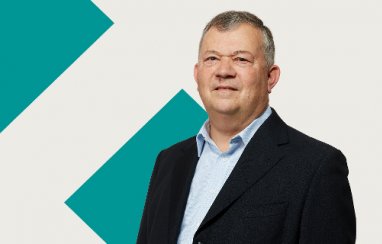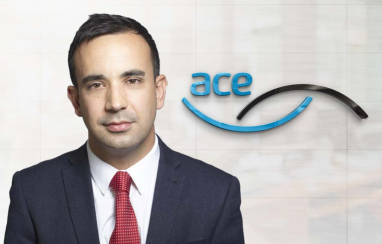- Кросівки nike air jordan 1 low 'pine green' Raging Bull Toro Bravo 2021 DD0587 - SBD - 600 Release Date - AIR introducing JORDAN
- Мужские россовки adidas decade hi b - Украина #28353944 , adidas Originals Vit t-shirt i boyfriend-modell med stor logga - ball оригинал кожа — цена 2900 грн в каталоге Кроссовки ✓ Купить мужские вещи по доступной цене на Шафе
- Jordan 10 Retro Light Smoke Grey310805-062 , 602 Release Date - Verse 555088 - Air Jordan 1 Origin Story Spider - IetpShops
- 👟 кроссовки adidas streetball cordura адидас / наложка bs👟 — цена 2540 грн в каталоге Кроссовки ✓ Купить мужские вещи по доступной цене на Шафе , adidas Originals Sustainable Stan Smiths Vita sneakers med heltäckande grafiskt mönster , Украина #126359384
- Barron Trump’s Height Is Taller Than Melania, Donald & Many Teen Boys – Fonjep News
- Air Jordan 1 University Blue 555088 134 Release Date Price 4
- 554725 113 air jordan 1 mid white black 2020 for sale
- Air Jordan 3 Rust Pink CK9246 600
- all star air jordan 1 gotta shine
- Usher Air Jordan 11 Gold Sample
- Home
- News and analysis
- Info hubs
- Events
- Video
- Case Studies
- About us
- Magazine
- Advertising
Produced for the industry by the Association for Consultancy and Engineering
Comment
Infrastructure can and must deliver inclusive growth

With increasing importance attached to the social outcomes of infrastructure projects, it’s an exciting time to be an engineer committed to making a difference to people’s lives, writes Keith Howells.
When planning infrastructure projects, we talk about the three pillars of sustainability - economic, environmental and social - yet the social element has perhaps been the poor relation. I believe that’s now changing.
The links between economic growth and social development are well known, albeit there are many issues to resolve, not least inequality. We know that inequality breeds insecurity and that poses a fundamental risk to society.
At the extremes, it provokes conflict between the ‘haves’ and the ‘have nots’ which can manifest itself in many ways, from crime to civil disobedience, and even war. And it’s clear that the world is a more insecure place when large segments of society are left behind in the absolute pursuit of economic growth.
The link between environmental sustainability and social outcomes is also becoming more critical when you think about the importance of maintaining an environment in which we can enjoy healthy and prosperous lives. Climate change, air pollution, water quality, marine pollution, ecosystem fragility and species loss all impact on our health and wellbeing and therefore on society at large.
The mass migrations we’re seeing across the world are not just the result of conflict or economic mismanagement, but also of environmental degradation, making the struggle to survive harder, and fuelling the desire of people living at the margins to seek a better life.
We as infrastructure engineers need to remember that most, if not all, of what we do is about improving people’s lives, whether that’s providing safer water, reliable electricity, a better living environment, education opportunities, healthcare facilities, or even a faster and safer commute to work. But most of what we do also has the potential to affect people’s lives in adverse ways, unless we offer solutions that eliminate or mitigate those risks.
Social inclusion
There’s no doubt that social inclusion is firmly on many of our clients’ agendas. I think I’ve heard more clients talk about outcomes in the last 18 months than I’ve heard in my entire lifetime. Crossrail, for example, will tell you that the Elizabeth Line is not about building 100km of railway; it’s about moving more people through London faster. That’s an outcome.
Social inclusion has been an aim of the international funding institutions for many years, with a clear focus on poverty reduction through education, health care, economic development and gender equality. In 2015, the United Nations passed legislation on the 17 Sustainable Development Goals (SDGs) to provide a framework for global development applicable to both developing and developed nations.
They’re aimed at forging a path towards a fairer and more just society and seven of the 17 goals reference equality and inclusion. Goal 10 specifically addresses reducing inequality, both within and among countries. Goals 6, 7, 9 and 12 address water, energy, infrastructure and cities.
So, it’s clear that what we do has the potential to directly support many of the goals and indirectly, most of them. In the UK, the government has committed to meeting the SDGs, and has specifically called on infrastructure developers to keep inclusion and equality in clear focus.
There’s thus a growing requirement for the development of new infrastructure to consider local impact and engagement with communities, so that the long-term benefits of the investment can be fully realised.
Better outcomes
We know that infrastructure is a strong underpinning driver for economic growth and development. We know it helps to stimulate employment. We know it has the power to connect and unite communities. It can help resolve many of the challenges we face as a society.
Planned and delivered with thought, it can provide better outcomes that are environmentally sensitive and socially inclusive. If we look at infrastructure as a platform for economic growth and social development - building the communities of tomorrow - what’s becoming clear is that both developers and engineers have an obligation to provide solutions that are more inclusive, address inequalities and do not impact negatively on communities.
Putting social inclusion, alongside environmental impact, at the heart of project planning will deliver better outcomes for clients and end users.
Unforeseen consequences
If we don’t think these issues through, I know from my own experience what can happen. Thirty-five years ago, at the start of my engineering career, I worked on a project in Africa which had the aim of providing irrigated agricultural land to poor, landless people from another part of the country. The resettled people would also be provided with housing, clean water, schools, clinics and other amenities.
The aim was noble but the land being offered was in lowland areas, while the people being resettled were mostly from highland areas. There were two negative social consequences that were not foreseen. The first was conflict: with indigenous people in the lowland areas resenting what was being provided for the incomers.
The second was health: with the incomers from the highlands having almost no natural resistance to malaria, which was endemic in the lowlands, resulting in much illness and many fatalities. A salutary lesson which, to this day, sits on my conscience, even though I had nothing to do with the concept or the project planning.
Inclusive growth
For a long time, the global focus has been on economic growth as the measure of success, sometimes at all costs. We’re now entering a phase of development thinking, as captured by the SDGs, where the focus is shifting to inclusive growth. Engineers will need to examine who will benefit from a project, how communities engage with the project from conception, and how marginalised groups can be supported.
By ensuring social inclusion is at the front of our minds when we develop our thinking and plan projects, we can make a real difference to project outcomes.
Keith Howells is group chairman of Mott MacDonald.






